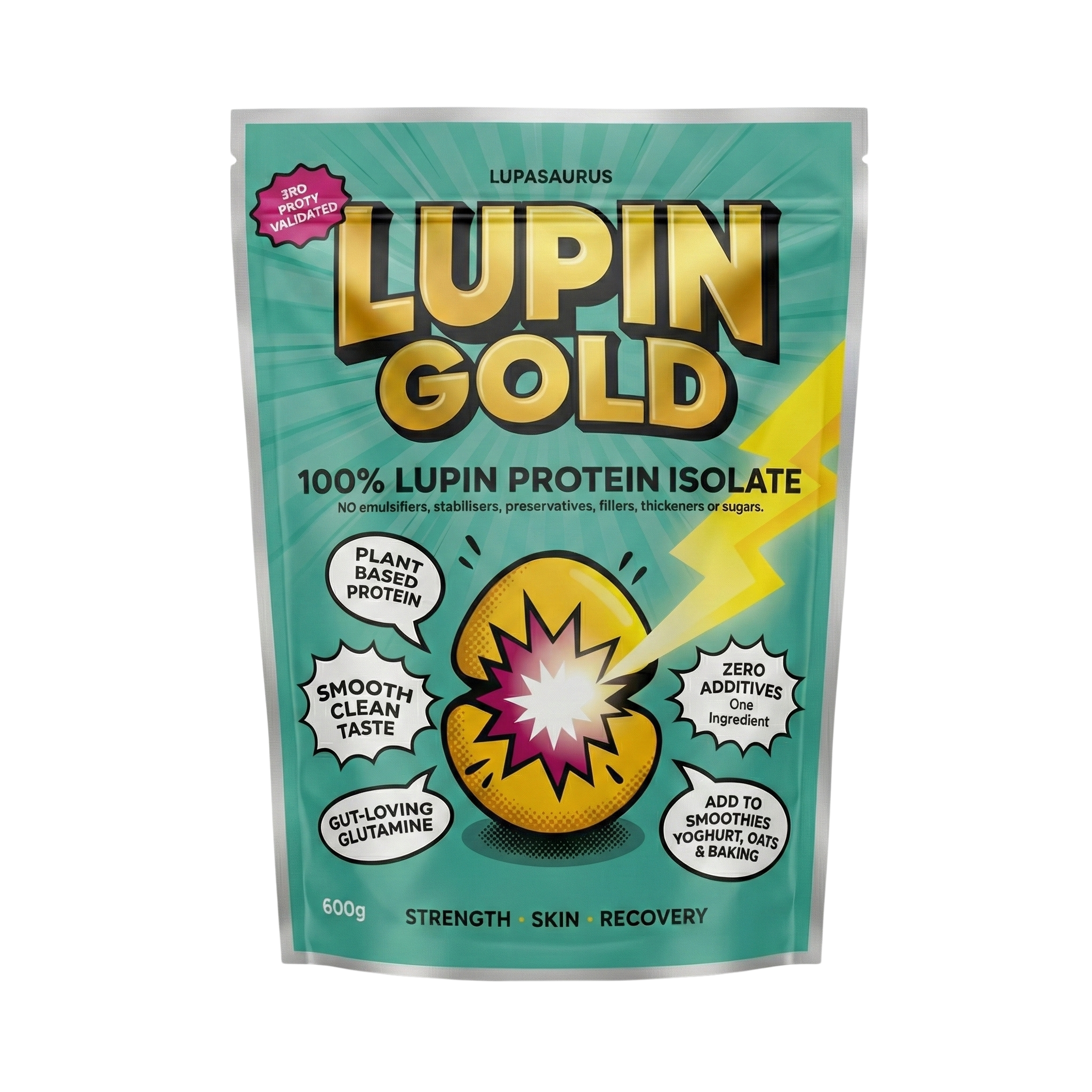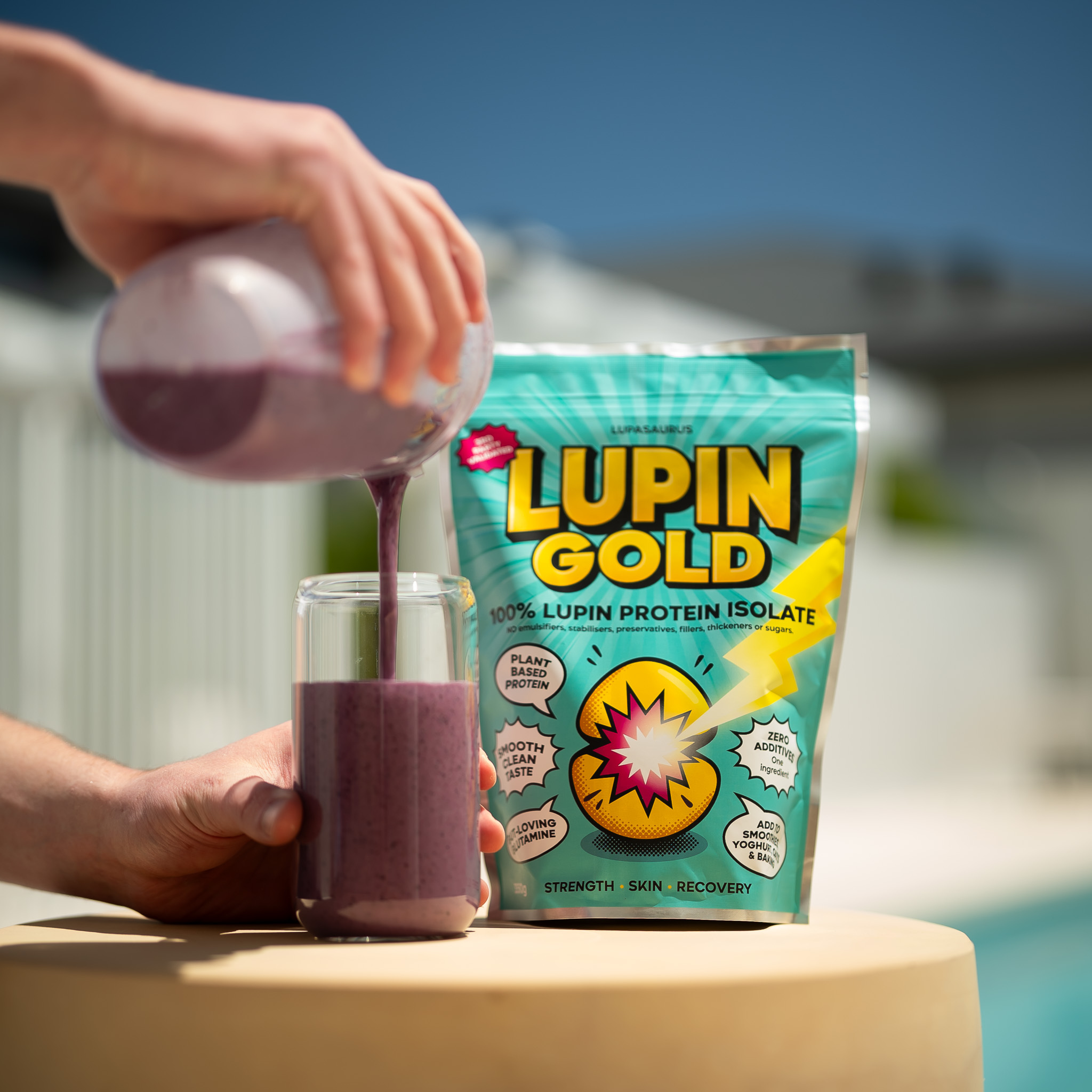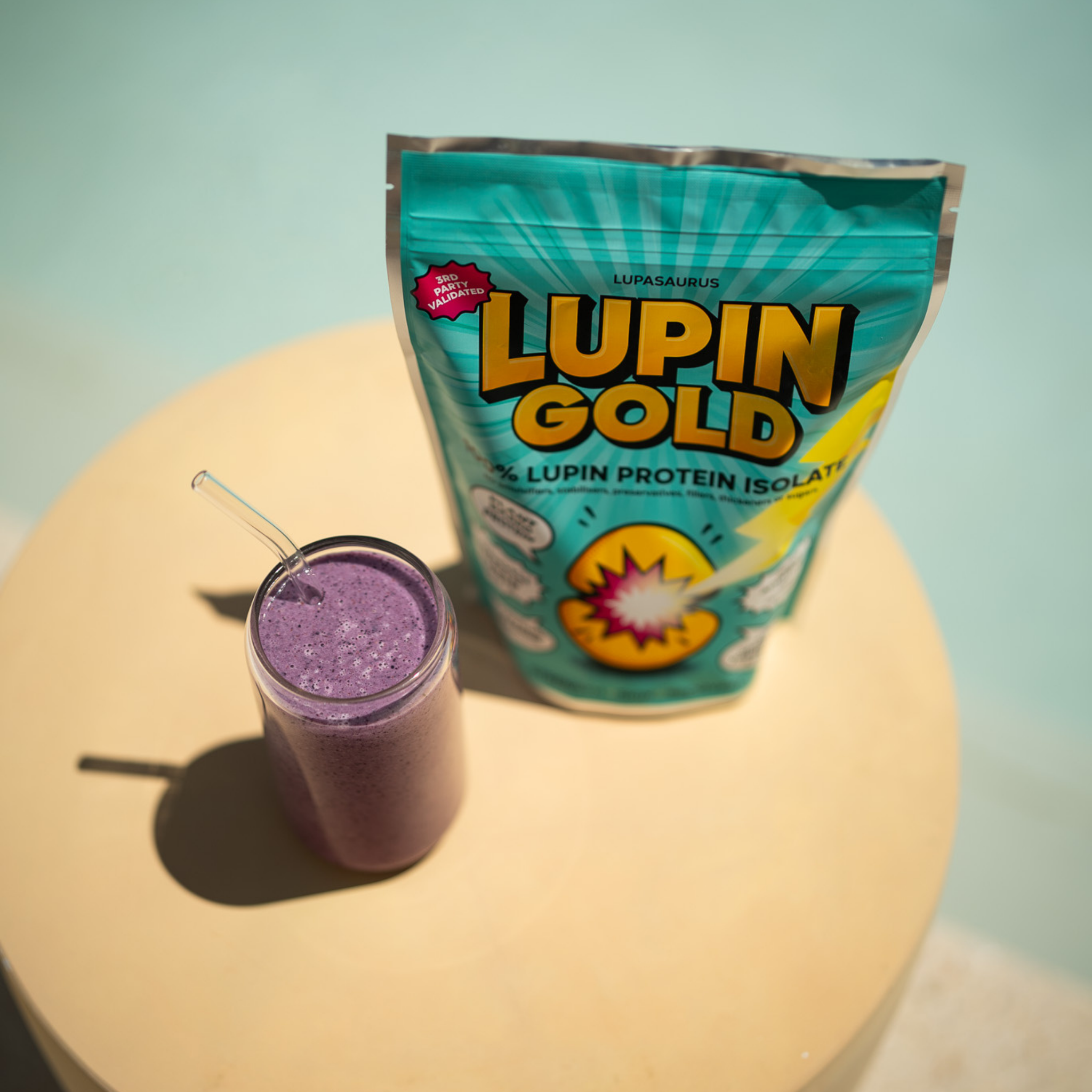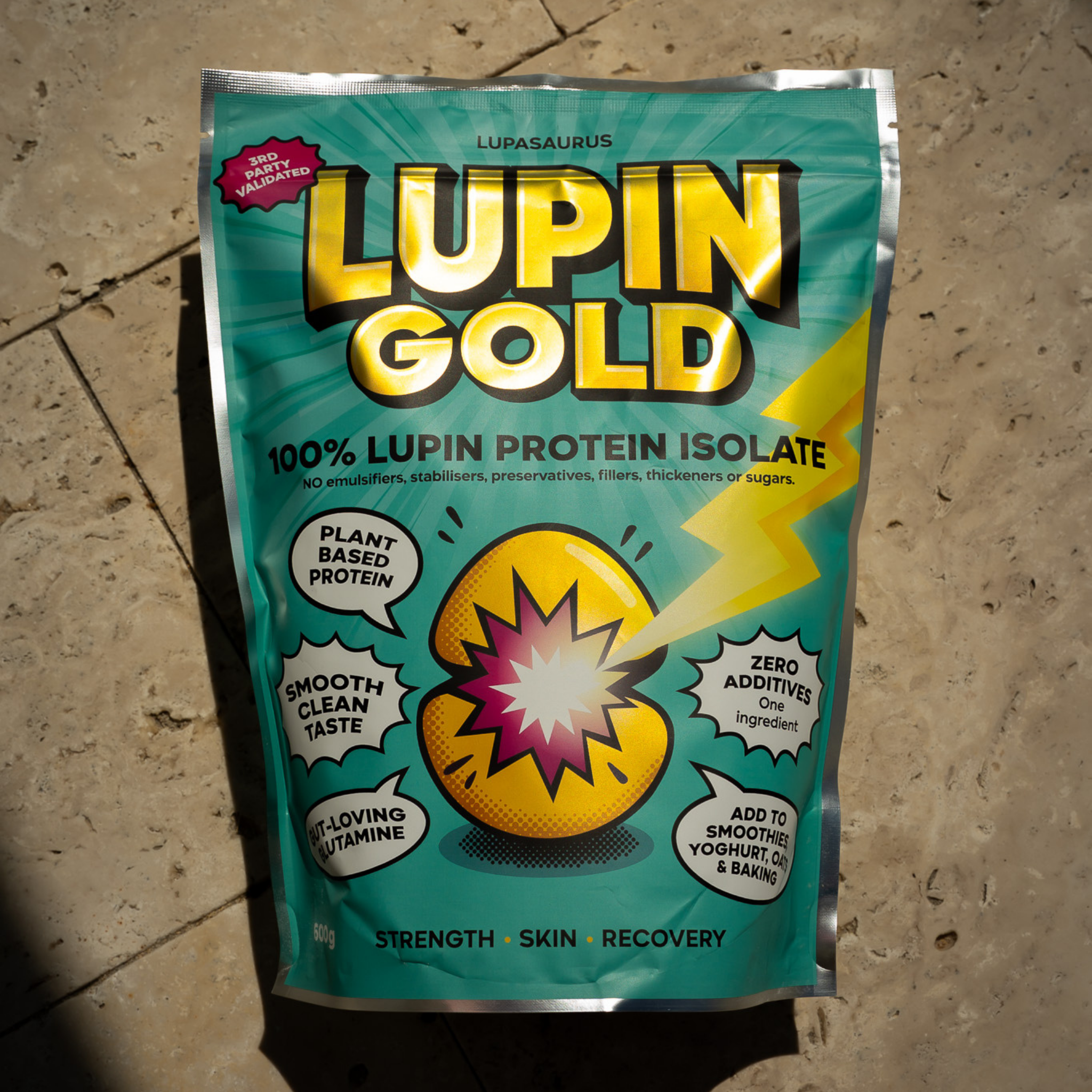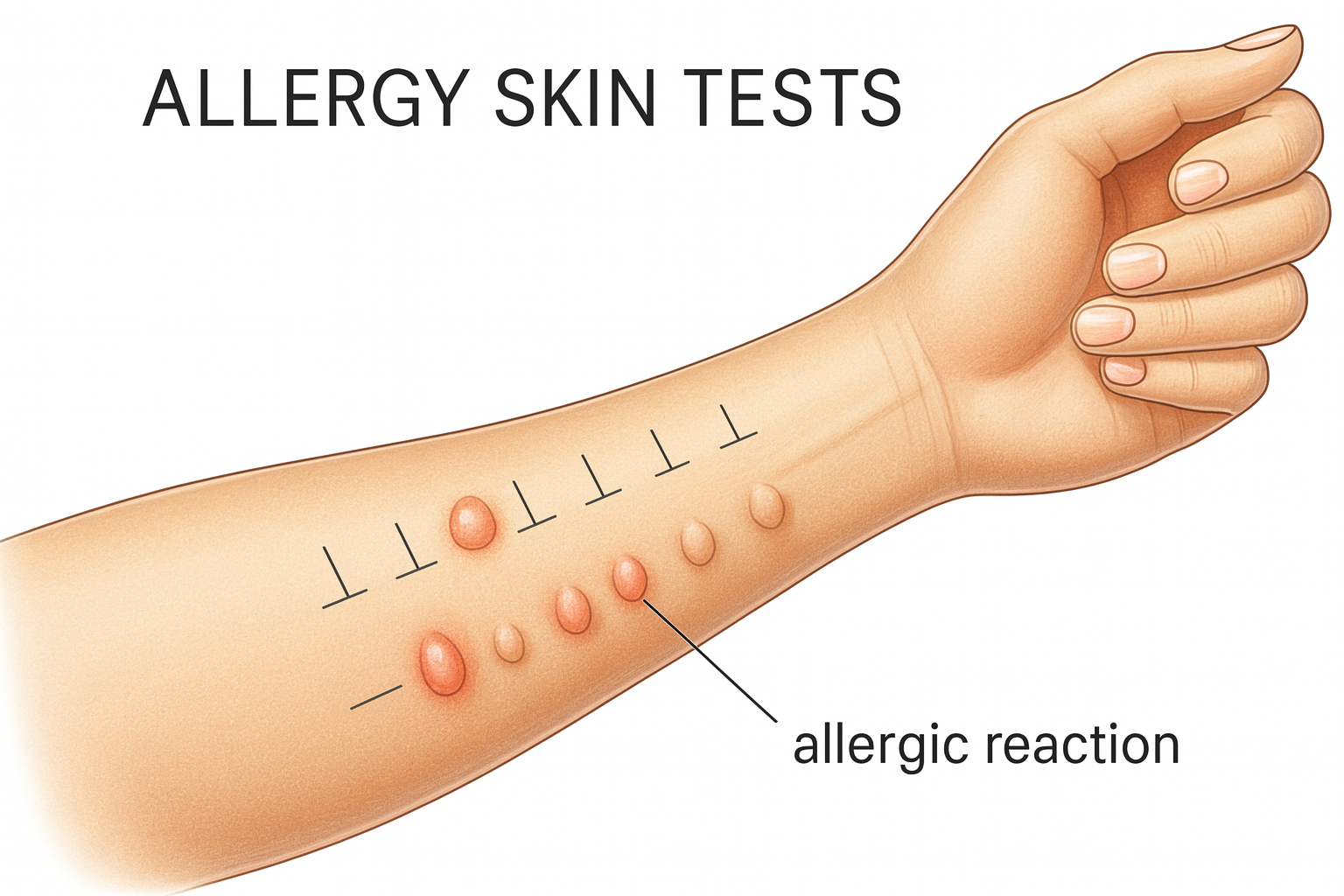Spoiler: your glow isn’t built by a dessert-flavoured shake — it’s built by amino acids. If you’ve been told “beauty protein” equals a tub of sweetened collagen, pull up a chair.
Skin and hair are made from proteins – collagen, elastin and keratin. To build them, your body needs the right amino acids, consistently, without wrecking your gut or your routine. That’s where lupin protein quietly shines: clean, complete, neutral and easy to use every day.
Founder note (Harvie & Kobi): We didn’t set out to make a “beauty” supplement. We set out to make a wellness protein that bodies actually like — and skin happens to love what we've got.
Collagen vs Protein: what does your skin actually need?
Let’s clear this up without the drama:
- Collagen peptides are specific chains rich in glycine, proline and hydroxyproline. They are not a complete protein: they lack tryptophan and have low levels of other essential amino acids.
- Complete dietary proteins provide all nine essential amino acids (EAAs) that your body cannot make on its own. EAAs drive overall protein synthesis, including collagen production when vitamin C and other cofactors are present.
- Practical take: Collagen can be a nice add-on. But if you’re choosing one foundation for skin, hair, nails and the rest of your body (muscle, hormones, metabolism), a complete, digestible protein should sit at the base of the stack.
Why protein matters for skin (and hair)
- Skin structure & repair: Skin turnover is protein-hungry. EAAs support the creation of collagen and elastin — the scaffolding that keeps skin bouncy.
- Keratin for hair & nails: Hair shafts are made of keratin, a protein produced naturally in hair follicles. No adequate protein = your body prioritises survival over shine.
- Gut–skin link: A calmer gut often equals calmer skin. A protein that’s easy on digestion supports consistency — consistency supports results.
No miracle claims here. Just physiology.
Why lupin protein suits beauty-focused people (and everyone else)
- Complete & digestible: Lupin protein isolate has a high purity (~90 g protein per 100 g) and an excellent amino-acid profile. It meets FAO requirements for a high-quality protein.
- Neutral taste, zero sweeteners: No stevia sting, no fake vanilla cloud. It disappears into smoothies, oats, yoghurt, even savoury recipes (baking incl.) — so you’ll actually use it.
- Minimalist & allergen-aware: No dairy, no soy, no gluten, no gums. Fewer usual suspects = fewer reasons your skin or stomach kicks off.
- Prebiotic-friendly: Lupin seeds are nearly starch-free and contain about 40 % dietary fibre, mostly insoluble. This fibre fraction can benefit intestinal function and may improve digestive health, making lupin a smart ally for the gut–skin axis.

Collagen and lupin — together?
Sure. If you love collagen, keep it. Use lupin protein as your daily base (EAAs for whole-body protein synthesis), and drop collagen in when you want a targeted top-up. If budget or simplicity matters? Start with complete protein first.
Simple “beauty from within” routines
Everyday Glow Smoothie (5 mins)
- 1 scoop lupin protein
- 1 banana or handful of berries (vitamin C cofactor)
- 1 tbsp nut butter
- Water or milk of choice
- Ice, blend, done
Overnight Oats
- Oats + chia + lupin protein
- Milk of choice
- Pinch of cinnamon
- In the fridge overnight; top with berries in the morning
FAQs
Is lupin protein good for skin?
It provides the essential amino acids your body needs for protein synthesis, including the building blocks for collagen and elastin. Pair with vitamin C, hydration and sleep for best effect.
Can I take lupin protein and collagen together?
Yes. Think lupin = foundation (complete protein), collagen = optional top-up (specific peptides).
Will this help my hair?
Hair is made of keratin, a protein produced naturally by the body. Adequate daily protein is a smart first step for hair strength, alongside general nutrition.
I’m sensitive to whey/soy. Will this upset my stomach?
Lupin Gold is dairy-free, soy-free, gluten-free with a simple ingredient list. Its fibre and protein profile makes it highly digestible. If you have a known lupin or peanut/legume allergy, see our allergen page and speak with your clinician before use.
The tidy summary
If you want skin and hair that look looked-after, start with what they’re made of: protein. Make it complete, make it gentle, and make it something you’ll actually take every day. That’s why we built Lupin Gold the way we did — simple, neutral and weirdly easy to love.
Disclaimer: This article is for general information only and reflects our own research and understanding at the time of writing. We are not scientists, and information may evolve. It is not individual medical advice — please speak with your healthcare professional for personalised guidance.


